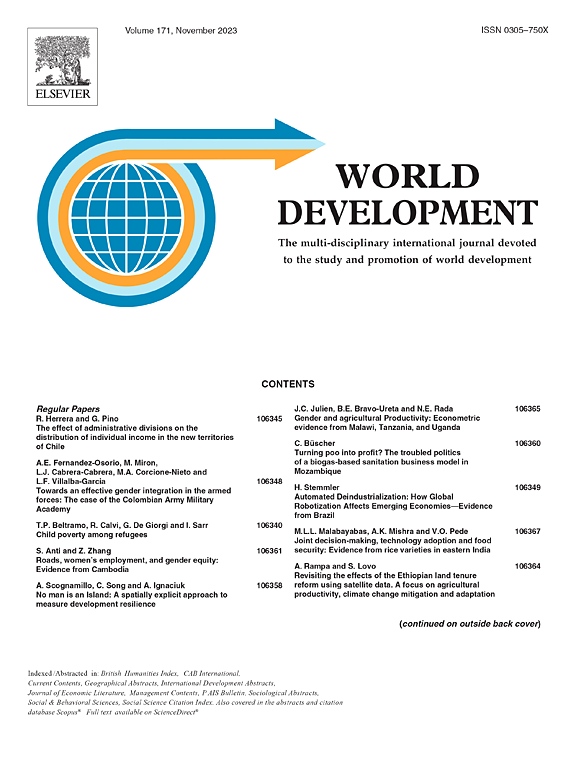 Julie Schlick published her article “Climate change, comparative advantage and the water capability to produce agricultural goods”, co-authored with Fabien Candau and Charles Régnacq, in World Development, 2022, 158, 105963.
Julie Schlick published her article “Climate change, comparative advantage and the water capability to produce agricultural goods”, co-authored with Fabien Candau and Charles Régnacq, in World Development, 2022, 158, 105963.
Abstract: This article analyzes how climate change influences the exports of agricultural goods and the specialization of nations (e.g., comparative advantages) by altering farmers’ capability to use available water. Our main contribution is methodological since we present the first attempt to link precisely the micro-determinants of production to the macro-determinants governing the specialization of countries. We use a rich set of data both locally (at the crop level analyzing thousand fields that cover the Earth’s surface) and at the global level (analyzing bilaterally the international trade of nations). At the local level, we estimate the elasticity of production to the thermal and hydrologic conditions (including blue and green water as well as groundwater storage) along with fixed effects (at country-product and at the crop level) to control for omitted variables. At the global level, we use the predicted value of these elasticities to compute an indicator of the water capability to export agricultural goods, which is then used in a trade gravity equation to control for trade costs that also shape the specialization of countries. From these estimates, we finally build an indicator of comparative advantage in agricultural goods and analyze how these relative advantages are affected by climate change in 2050. We present unexpected results at first sight, that are however in line with the Ricardian theory, such as cases where a deterioration of the local conditions to produce a good does not prevent an improvement in the comparative advantage to produce it (representing 32.51% of cases in our simulation), or the reverse, when the improvement of the local conditions happens simultaneously with a deterioration of the comparative advantages (representing 18.16% of cases in our simulation).
